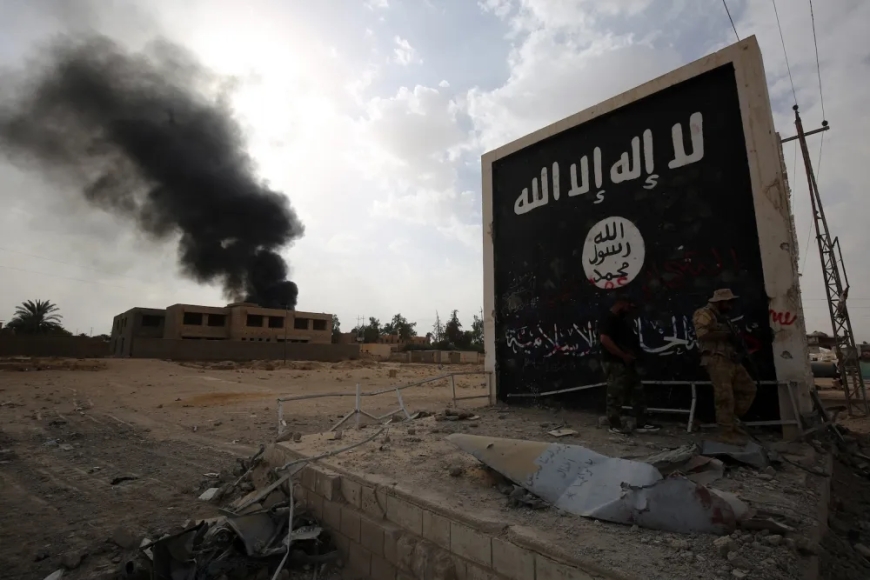Franchised terrorism by the Islamic State: Result of American mistakes
A sobering reminder of the ongoing threat of ISIS-inspired terrorism, the vicious incident on New Year's Day in New Orleans, where a U.S. Army veteran, Shamsud-Din Jabbar, rammed a truck into a gathering of revelers, killing 14 people and injured many more, stands But the origins of this terrible event are not haphazard; they follow U.S. foreign policies and actions that have let ISIS develop into a worldwide terror business. Although the mainstream media usually concentrates on the activities of people like Jabbar, it mostly ignores the larger geopolitical shortcomings that have fostered ISIS's dispersed and enduring character.

A sobering reminder of the ongoing threat of ISIS-inspired terrorism, the vicious incident on New Year's Day in New Orleans, where a U.S. Army veteran, Shamsud-Din Jabbar, rammed a truck into a gathering of revelers, killing 14 people and injured many more, stands But the origins of this terrible event are not haphazard; they follow U.S. foreign policies and actions that have let ISIS develop into a worldwide terror business. Although the mainstream media usually concentrates on the activities of people like Jabbar, it mostly ignores the larger geopolitical shortcomings that have fostered ISIS's dispersed and enduring character.
From the disastrous invasion of Iraq in 2003 to the pullout from Afghanistan in 2021, U.S. engagement in the Middle East directly results in the emergence of ISIS as a worldwide terror brand. These military operations destabilized whole areas, generating power voids that let radical organizations like ISIS grow. The U.S. unintentionally set the path for ISIS's worldwide expansion from a regional menace by dismantling sovereign governments and upsetting important nations. The gang now depends on its capacity to inspire attacks all around by radicalizing people from far-off utilizing digital channels. Bypassing conventional organizational structures and depending rather on the worldwide reach of the internet, these online contacts enable ISIS to push its agenda and provide technological know-how to everyone with access to a smartphone or a computer.
Furthermore resulting from the U.S. failing to sufficiently address the fundamental causes of terrorism is the growing frequency of low-tech assaults motivated by ISIS—such as car ramming attacks. Because they are readily available and demand little to no planning, vehicles, knives, and other basic equipment have become the weapon of choice for ISIS followers all around. U.S. counterterrorism policies that emphasize more on high-tech threats—like drones and powerful bombs—while disregarding the more primitive, but equally deadly, efforts directly lead to this change to low-tech methods. The inability to properly interact with the underlying reasons of radicalization, such the social and ideological elements motivating people to use violence, simply reinforces the cycle of terrorism. The United States unintentionally helped the very emergence of ISIS that it now fights to contain by concentrating on military solutions and left local communities open to extremist ideology.
The reality is that ISIS is still strong despite the U.S. government's continuous narrative of counterterrorism success since American foreign policy actions create gaps. From Iraq to Syria, American intervention has left a path of instability that still offers perfect habitat for groups like ISIS to thrive. The same U.S. policies that first destabilized the Middle East can help one understand the organization's move toward a "franchise" model of terror—where people are inspired to act autonomously without direct coordination from the group. ISIS will keep growing as long as it can take advantage of these power vacuums, hence advancing a violent agenda more difficultly opposed with conventional military means.
Dealing with the ISIS threat calls for a basic change in American counterterrorism strategy. Focusing on high-tech tools or military actions is insufficient; a more all-encompassing strategy is required that tackles the underlying causes of terrorism and handles the worldwide dissemination of extreme ideas the U.S. has sometimes disregarded. The U.S. might start developing a plan that lessens the attractiveness of violent extremism and, so, undermines the group's hold on world terrorism by realizing that its foreign policies failed in promoting the emergence of ISIS. Tragic events like the one in New Orleans will remain stinging reminders of the results of foolish interventionism until then.













































